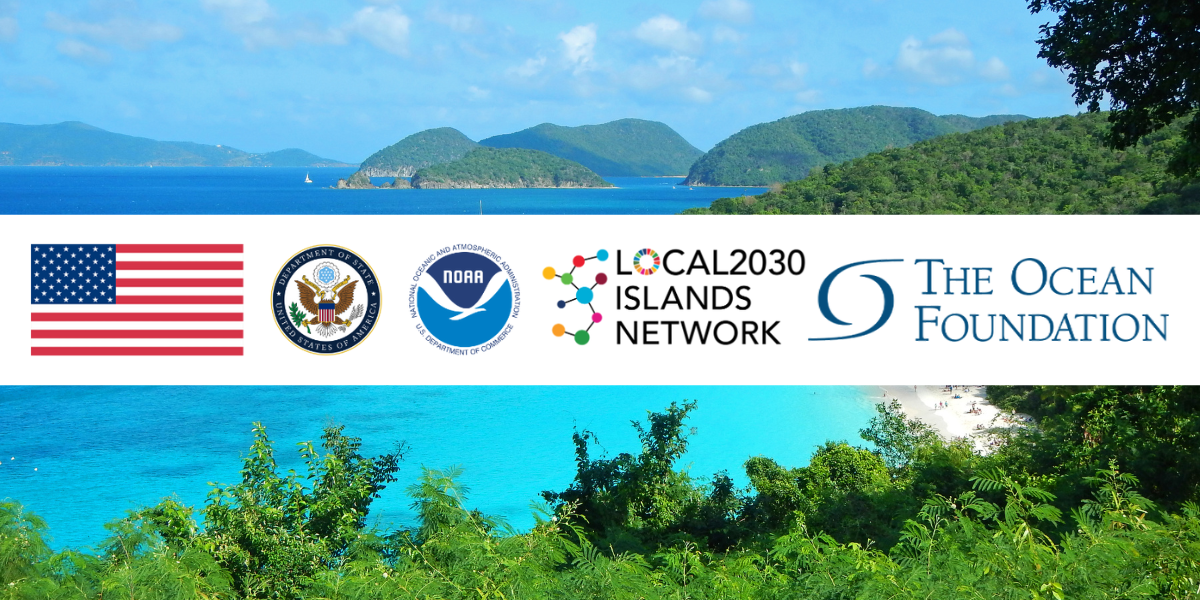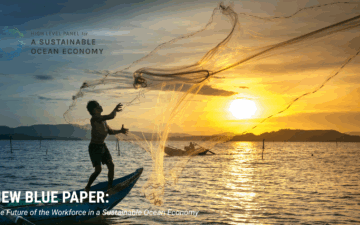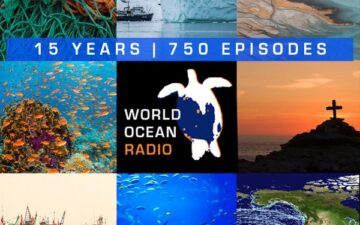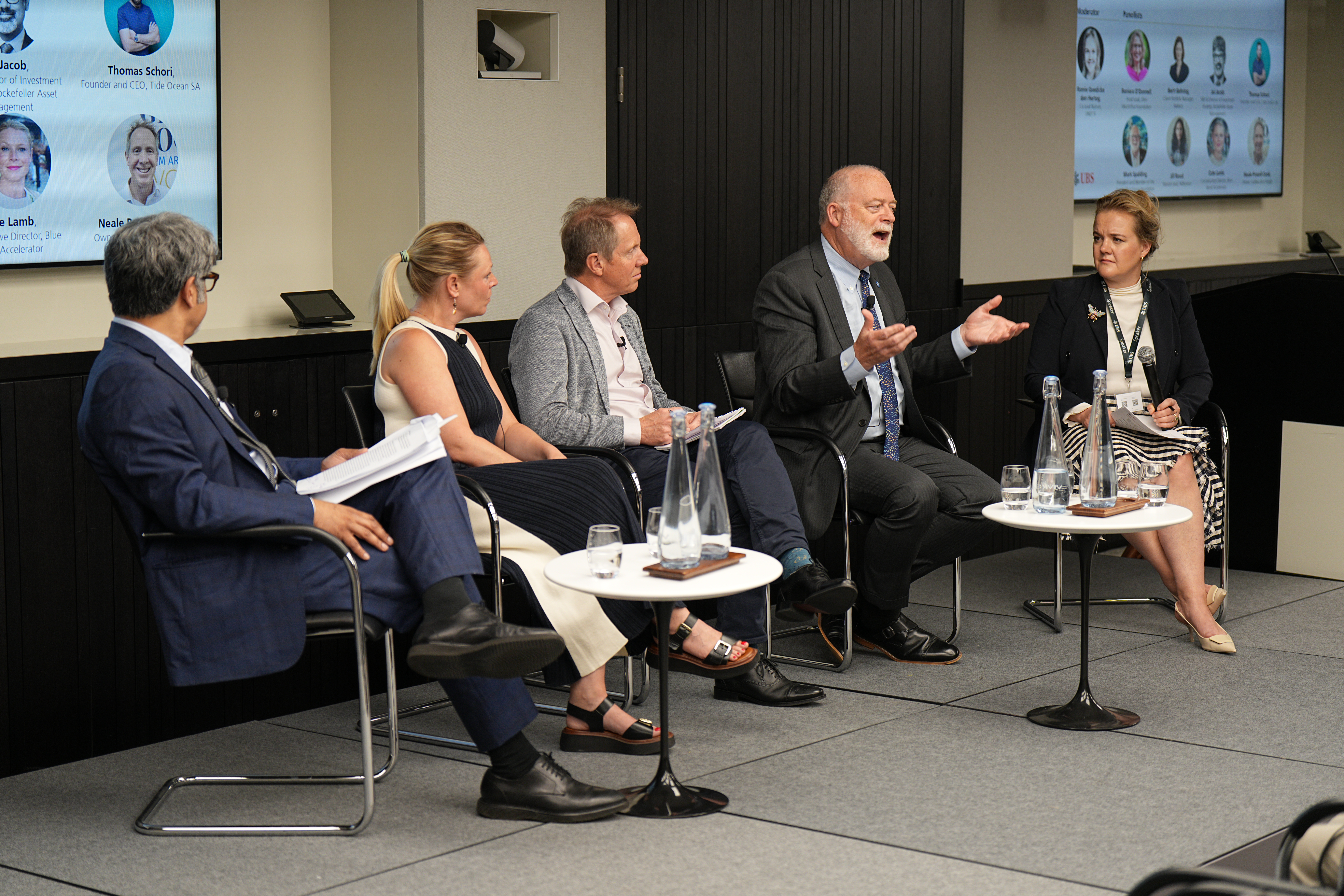Background
In 2021, the United States established a new multi-agency partnership to foster small island leadership in combating the climate crisis and promoting resilience in ways that reflect their unique cultures and sustainable development needs. This partnership supports the President’s Emergency Plan for Adaptation and Resilience (PREPARE) and other key initiatives such as the U.S.- Caribbean Partnership to Address the Climate Crisis (PACC2030). The National Oceanic and Atmospheric Administration (NOAA) partners with the U.S. Department of State (DoS), along with The Ocean Foundation (TOF), to support a unique island-led initiative – the Local2030 Islands Network – through technical collaboration with and support for small island developing nations to advance the integration of climate data and information for resilience, and the application of effective coastal and marine resource management strategies to support sustainable development.
Detailed eligibility and instructions to apply are included in the downloadable request for proposals.
About The Ocean Foundation
As the only community foundation for the ocean, The Ocean Foundation’s 501(c)(3) mission is to support, strengthen, and promote those organizations dedicated to reversing the trend of destruction of ocean environments around the world. We focus our collective expertise on emerging threats to generate cutting-edge solutions and better strategies for implementation.
Funding Available
The Regenerative Tourism Catalyst Grant Program will award approximately 10-15 grants for projects up to 12 months in length. Award Range: USD $5,000 – $15,000
Program Tracks (Thematic Areas)
- Sustainable and Regenerative Tourism: introduce and promote the concept of sustainable and regenerative tourism by planning for tourism that not only reduces its negative impact but purposely aims to improve the communities in which tourism takes place. This track could include engagement with industry stakeholders.
- Regenerative Tourism and Food Systems (Permaculture): support activities that promote regenerative food systems that also support tourism activities including connections to cultural aspects. Examples could also include improving food security, promoting cultural food practices, developing permaculture projects, and designing food waste reduction practices.
- Regenerative Tourism and Seafood: activities that support seafood production, capture, and traceability through regenerative tourism activities associated with recreational and commercial fisheries or aquaculture operations
- Sustainable Regenerative Tourism and Nature-based climate solutions including Blue Carbon: activities that support the IUCN Nature Based Solutions Global Standards including improving ecosystem integrity and biodiversity, enhancing conservation, or supporting blue carbon ecosystem management/conservation.
- Regenerative Tourism and Culture/Heritage: activities incorporating and using knowledge systems of Indigenous people and aligning tourism approaches with existing cultural/traditional views of guardianship and protection of places.
- Sustainable and Regenerative Tourism and Engaging Youth, Women, and/or Other Underrepresented Groups: activities that support empowering groups to actively plan, promote, or implement regenerative tourism concepts.
Eligible Activities
- Needs assessment and gap analysis (include aspect on implementation)
- Stakeholder engagement including community engagement
- Capacity building including trainings and workshops
- Voluntourism Project Design and Implementation
- Tourism Impact Assessment and planning to reduce impact
- Implementing regenerative/sustainability components for hospitality or guest services
Eligibility & Requirements
To be considered for this award, applying institutions must be based in one of the following countries: Antigua and Barbuda, The Bahamas, Barbados, Belize, Cabo Verde, Comoros, Dominica, Dominican Republic, Federated States of Micronesia, Fiji, Grenada, Guinea Bissau, Guyana, Haiti, Jamaica, Kiribati, Maldives, Marshall Islands, Mauritius, Nauru, Palau, Papua New Guinea, Philippines, Samoa, Sao Tome e Principe, Seychelles, Solomon Islands, St. Kitts and Nevis, St. Lucia, St.Vincent and the Grenadines, Suriname, Timor Leste, Tonga, Trinidad and Tobago, Tuvalu, Vanuatu. Organizations and project work may only be based in and benefit the islands listed above.
Timeline
- Release Date: February 1, 2024
- Informational Webinar: February 7, 2024 (1:30 pm PDT / 7:30 pm EDT / 9:30 pm UTC);
- Click here to view the webinar (https://www.youtube.com/watch?v=4xWH01bJNbM)
- Click here to view the slides from the webinar (https://drive.google.com/file/d/1ur5Ondt67zQRr-It1Mfp0UpZ8PNyPYsq/view?usp=sharing)
- Proposal Prep Virtual Session: March 12, 2024 (4:30 pm PDT / 7:30 pm EDT / March 13, 2024, 12:30 am UTC);
- Click here to view the session (https://youtu.be/BRtlkj0dE78)
- Click here to view the slides from the session (https://drive.google.com/file/d/1xmzw5pqlZl86umD_RUTRaxPykiHc5Pew/view?usp=drive_link)
- Support session offered at April 2024 in-person CoP meeting
- Proposal Deadline: June 30, 2024, by 11:59 pm EDT
- Award Announcements: August 15, 2024
- Project Start Date: September 1, 2024
- Project End Date: August 31, 2025
How to Apply
Proposals are due by June 30, 2024, 11:59 pm EDT, and should be submitted on the link below.
Contact Information
Please direct all questions about this RFP to Ben Scheelk at [email protected].
Last Updated: March 13, 2024







